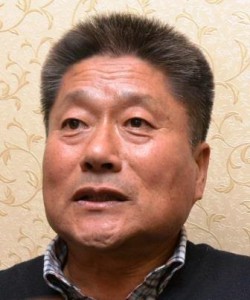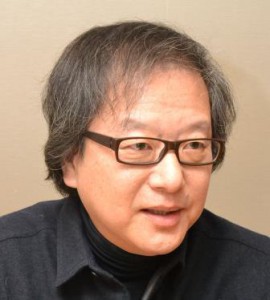[By Zhezhu Jin, The Japan Agricultural News Staff Writer]
South Korea’s President Park Geun-hye on Nov. 29 expressed her intention to resign, as hundreds of thousands of people joined huge street rallies across the country demanding that she leave office. What was at the root of the swelling protests was the people’s anger towards the Park administration which failed to take effective measures to cope with growing wealth inequality and unemployment among young people. Farmers are strongly criticizing the unprecedentedly low prices of rice. It appears that the worldwide anti-globalization movement which is seen in Great Britain and the United States has spread to South Korea. The Japan Agricultural News asked two experts to comment on the current situation in South Korea and future prospects.
<Korean Peasants League President Kim Young-ho>
As a matter of fact, neoliberalism came to an end in 2008 when the world was hit by the financial crisis which began in the U.S. The trend is becoming more evident, as Great Britain voted to leave the European Union, the U.S. electing Donald Trump as the next president and South Korean people engaging in a series of demonstrations. The highest value of human beings cannot be realized by market liberalization. The true value of humans is to realize happiness and world peace through working together and sharing achievements. However, in the last three decades, as neoliberalism came to the forefront, farmers and laborers were exploited for the sake of those in power. People’s anger towards the situation led to large-scale protests.
In spite of all this, the South Korean government still has not given up on maintaining free trade agreements. Japan is also pushing its way towards realizing the Trans-Pacific Partnership agreement. Such moves go against the recent tide of anti-globalization.
Until recently, farmers, laborers and college students have been holding demonstrations separately, and it was relatively easy for the government to crack down on them. However, policies on demonstrations changed in 2014 after executive changes at the Korean Peasants League. Starting in 2015, workers, farmers and the urban poor formed a coalition which has expanded to the current protests.
Our initial goal is Park’s resignation, and the next goal is to launch a political force, a political party that represents farmers and workers and create a peaceful Korean society that goes beyond the divided Korean peninsula.
<Trade & Democracy Institute Prof. Lee Hae-young>
Large-scale protests in South Korea are a revolt by the victims of globalization under neoliberalism, just like the election of Donald Trump as the next president of the United States. Neoliberalism has brought about widening gaps between the rich and the poor, creating pathological social phenomena in various places. In particular, liberalizing giant conglomerates’ transfer of business abroad resulted in reducing domestic investment and employment. Park’s scandal worked as a spark to make people’s discontent over such a situation explode and expand into a riot.
Trump’s intention to withdraw from the TPP deal drew wide support in the context of anti-globalization movement. The TPP framework will fall apart, and globalization based on FTAs under Trumpism will prevail.
Now is the time to make a major policy paradigm shift. Free trade based on comparative advantage not only lacks logical ground but also is deemed questionable from experience. From now on, in trading farm and livestock products for example, it is necessary to proceed with an agreement that focuses not only on price competition but also on cultural diversity. Farmers of all nations should unite, establish a cultural diversity agreement and seek a path of coexistence.



